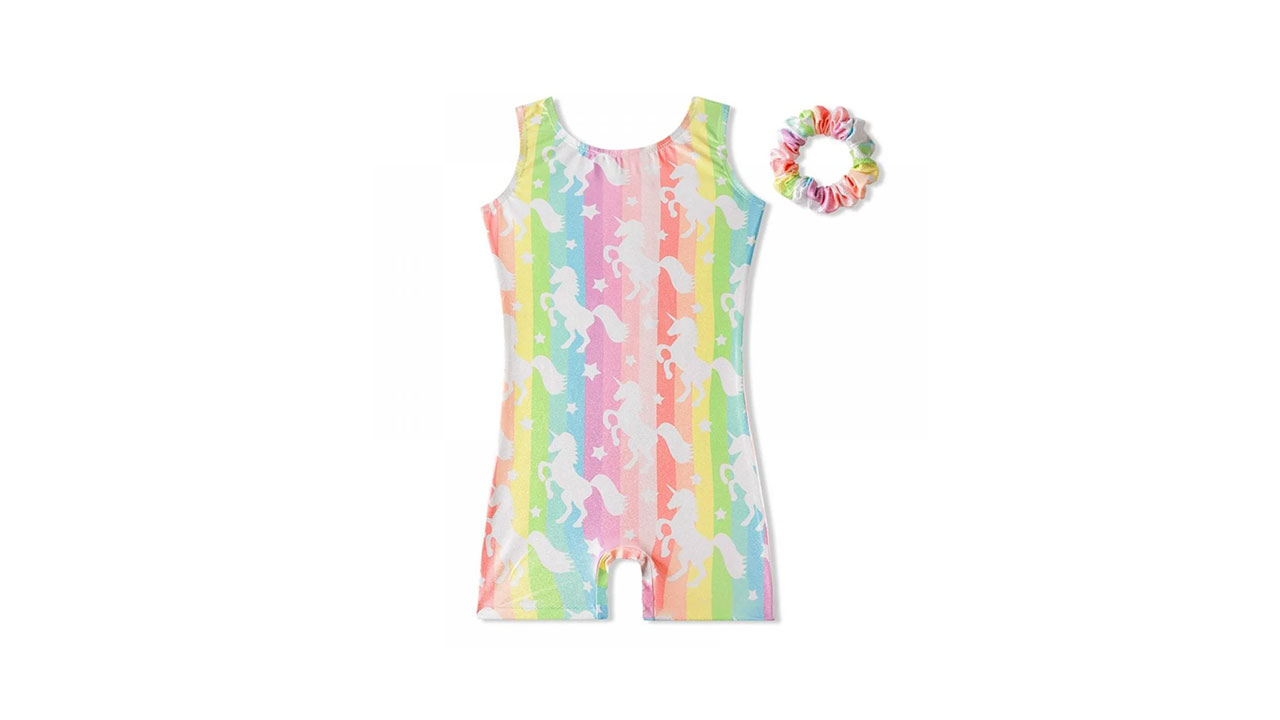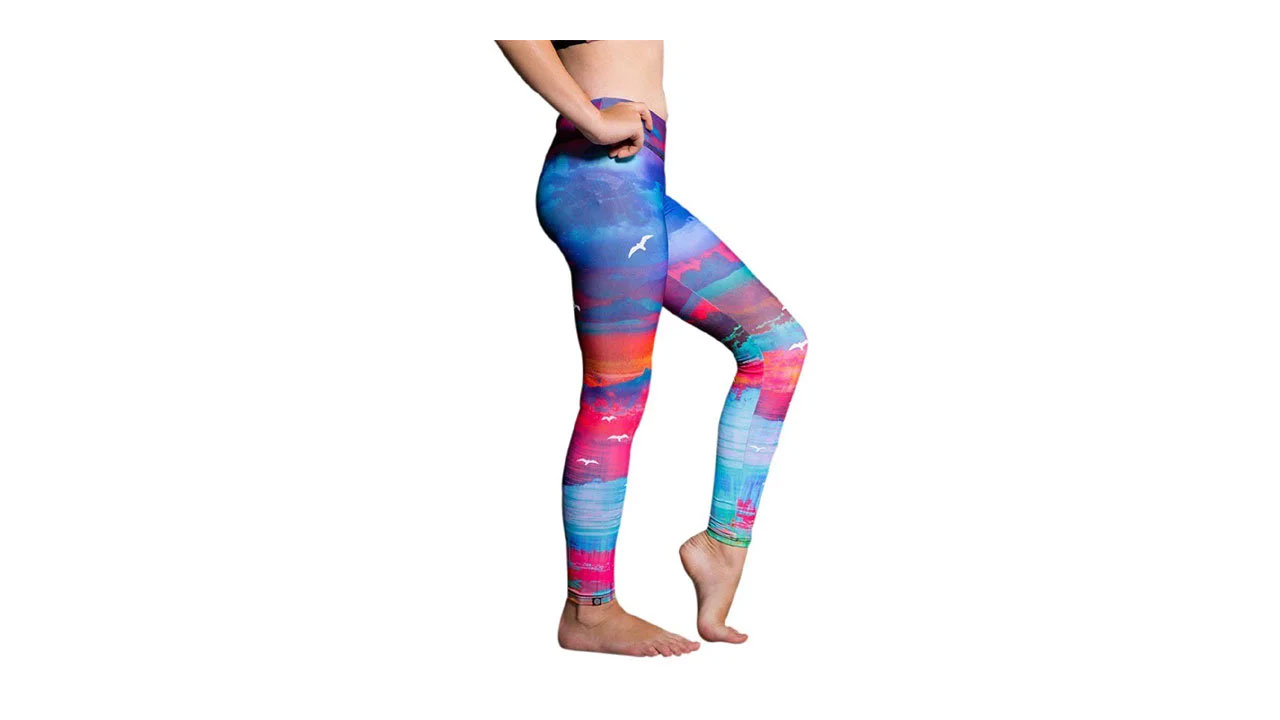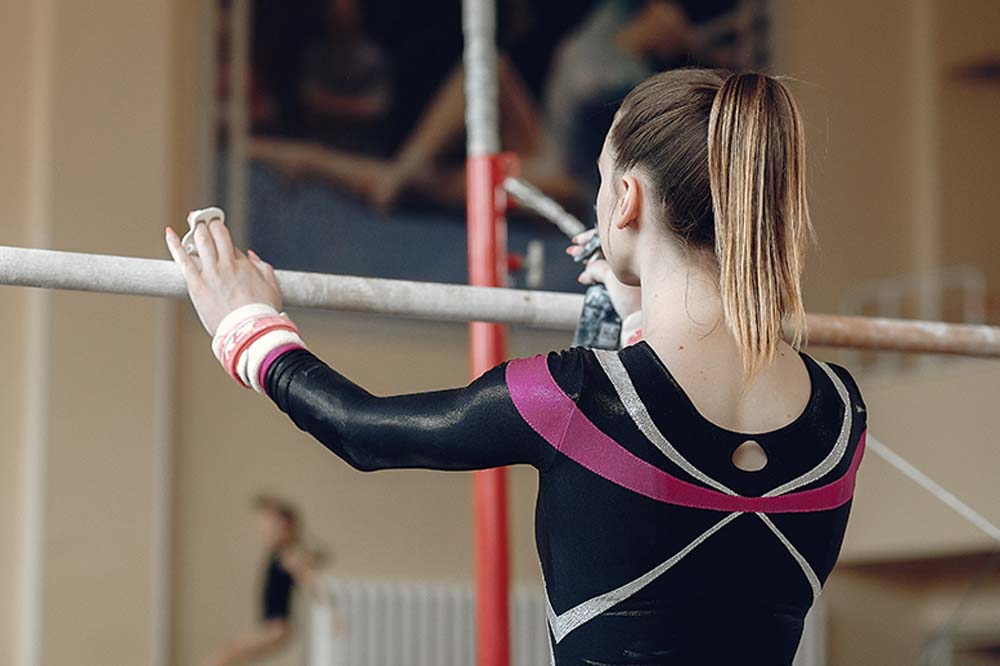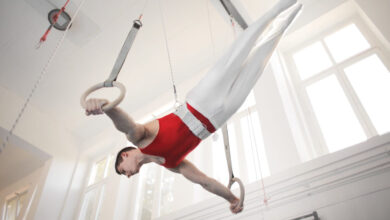What do Gymnast Wear For Practice?
Gymnastics is the performance of systematic exercises while using rings, gymnastics bars and other apparatus. People do gymnastics either as a competitive sport or improve strength, agility, coordination, and physical conditioning. For that, comfort and flexibility is crucial, let’s explore ‘what do gymnast wear?’
Table of Contents
Such an agile sport needs proper attire to accompany athletes with comfort during the performance. Do you know what do gymnast wear during their performance to keep them comfortable and cosy, whatever the situation is? Come with us to know in detail about those comfy clothing of gymnasts!
What’s the Need for Special Gymnastics Attire?
Gymnastics entails movements on various structures, including the pommel horse, parallel bars, circles, and high bar. Therefore, they must dress appropriately to perform these movements with the most incredible ease and protection. Although what you wear will vary depending on your practice and competition, the appropriate outfit will allow you to move freely, reduce the risk of injury and allow trainers and jurors to see your physique correctly during play.
Let’s Have a Look What do Gymnast Wear
Here is a closer and deeper look at what do gymnast wear during their training sessions or performances:
- Leotard
- Singlets
- Unitard
- T-shirts
- Shorts
- Pants
- Leggings
- Undergarments
- Hair and jewellery items
- Slippers or socks
Leotards
Jules Leotard, a French acrobat, is known for creating the leotard, though he called it a maillot at the time. A leotard is a unisex skin-tight one-piece dress covering the body from the crotch to the shoulder. Acrobats, gymnasts, dancers, ice skaters, athletes, actors, wrestlers and trapeze artists all wear leotards while rehearsing and performing. Leotards can be short-sleeved or long-sleeved and cut at the groin area, much like a bikini. Numerous gymnasts wear these in preparing, with or without tight-fitting shorts over the top.

Nonetheless, gymnasts are needed to wear leotards in competition. Make sure that your leotard doesn’t have any hanging embellishments like ornaments, ties and strings because these can get captured and increment your danger of falling.
Many specially designed leotards for artistic gymnastics skills training and competitions are available in the market to address your needs. Go for a visit, or you can order from any of the well-reputed e-commerce websites. Up to you!
Singlets
A singlet is a sleeveless sports shirt, usually worn by athletes and boxers. It is a tight-fitting plain garment piece consisting of shorts and a sleeveless top with sometimes a draped collar to the chest. A singlet is almost similar to the leotard with just an addition of shorts.

Like leotards, your singlet must not have any hanging frills, buttons or some other thing that may make your performance difficult or disturbed.
Unitard
Unitard is almost similar singlet, which provides shorter legs. There are shorts to wear with a gymnastics unitard or biketard. It basically is a leotard with shorts attached to the outfit. The short is usually the same color as the upper part. Many gymnasts find these very comfortable to move around and perform.

T-shirts
A t-shirt with shorts is the most comfortable and everyday attire seen in men’s gymnasiums during training sessions, but they aren’t allowed during the performance.

T-shirts should be flexible enough to offer optimum comfort by not restricting the range of motion but tight enough to avoid getting in the way and causing injury.
Shorts
Like t-shirts, shorts are usually not allowed during many of the performances. But you can wear them during your training sessions by pairing them up with a leotard or t-shirt. They should be tight-fitted to support your sports type and must be made up of breathable fabric. Remember not to wear shorts with any pockets, zip or strings, to avoid the risk of injuries during the play.
Pants
Pants paired up with a leotard are allowed during competitions. They provide complete coverage and still let trainers or jurors see your body movements clearly during performances. Pants are preferred when performing on pommel horse, high bars or parallel bars.
Leggings
Gymnasts sometimes doesn’t feel like wearing leotards for practice. Instead, they might choose to go for sports bra and leggings during these times. Such attire provides full coverage without any hinderance in performance and flexibility of the gymnast.

Undergarments
Most gymnasts don’t wear panties when wearing a leotard because these costumes look much like a swimming suit. You should, however, wear panties if you’re wearing a leotard. If you’re a guy, your underwear should be tight. But if you’re a woman, your panties should be skin-coloured and tailored like a leotard to hide any panty lines.
Hair and Jewellery Items
Athletes with long hairs must always pull their hair back. If one’s hair is worn down during the performance, it may get in his/her face or get stuck in hands or feet, disturbing the game and increasing the risk of injury.

No jewellery item other than the ear studs are allowed to wear for gymnasts, as these can be the things affecting or disturbing your game. You can’t even wear a ring as it causes great trouble during games like uneven bars.
Slippers or Socks
Most gymnasts both practice and contend with bare feet. Socks can make a wellbeing peril as they are frequently tricky on the device. But special slippers with non-slippery soles and well fitted to athletes’ feet are allowed in the competitions. They give an extra grip during running or while using a beam.
Attire Specifications for Different Age Groups
Now when we are well aware of what gymnasts wear, we must have known that obviously, not the gymnasts of every age or gender have the exact clothing specifications. Whether they are male gymnasts or females, toddlers or young adults, they all have different sports attire needs. You can get a wide variety of such types of clothing in the market out there.

Some very renowned brands are also manufacturing these attires for athletes. You can get a better choice by visiting the stores. If you are new in the field and want to know every single detail about sports attire before purchasing one for you, then you have landed on the right platform. Details regarding gymnasts clothing for each age group and gender are discussed below.
Girls Gymnastic Clothing
Now you must have an idea about what girls gymnasts wear. Let’s have a look at the summary.
The proper gymnastics attire for girls is a leotard, and most girls in the gym wear only them. Leotards are great because they won’t catch on to anything, and they let the gymnast have a full range of movement.
Younger gymnasts are usually okay with just wearing a leotard, whereas more senior gymnasts like to wear shorts on top. Older gymnasts also wear a sports bra under their leotard for extra support. Female gymnasts aren’t allowed to wear any jewellery during training or competitions.
Girl gymnasts must have their hair tied up properly to avoid any disturbance because of them. Headbands are a great to-go option for holding the hair back from the face when they are in a ponytail or bun.
Gymnastics Clothes for Toddlers
The same question again, what do gymnast wear, but this time with a different perspective. It is talking about our toddler gymnasts.
You must be conscious about your toddler gymnast’s undergarments when shopping for a leotard for him/her. If you don’t want your gymnast’s underwear or diaper dangling out, a unitard (leotard with attached shorts) is a much better option to go with. This is just a complete gymnast wear outfit for your toddler.
Boys Gymnastics Leotard
When it comes to boys, they are mostly seen as more comfortable in shorts and a t-shirt during gymnastics class. But leotards or singlets are the preferred attire for competitions.
Despite this, if one wants to wear a t-shirt paired with shorts or pants, remember to avoid clothing with any snaps, zippers or buckles that could get caught on any of the equipment and lead you to end up with an injury. Plus, if wearing a t-shirt, it must be tucked up into their pants or shorts.
What do Gymnasts Wear Under their Leotards?
Gymnasts typically don’t wear underwear and expose their undergarments beneath their leotards. Leos can offer gymnasts the necessary support and protection, much like swimsuits. They risk losing points if they suffer a wardrobe malfunction during competition, like a bra strap coming loose or a panty line peeking out from under their leo.
However, underwear may become a problem if your gymnast is a teenage girl. Leotards can be very exposing, and your youngster could be self-conscious about her appearance. If so, she can wear sports bras and seamless, high-cut panties or thongs that coordinate with her leos’ style. If wearing bra is a problem, she can opt for tape over her nipples. In order for the underwear to be undetectable, it must also match her skin tone in hue.
What do Gymnasts Wear to Practice Besides a Leotard?
What should your child wear to gymnastics practice if it’s their first time taking the class and you’re not sure if they’ll enjoy it? Young boys and girls can typically wear T-shirts and sports shorts or footless leggings to class, depending on the gym.
In order to prevent the T-shirt from covering their face when they do handstands or tumbles, your child needs to be able to tuck it into their shorts. No matter if the gymnast practice starts at home or gym, safety is crucial.
There should be no buttons, clasps, frills, or zippers on gym clothing. This is due to the possibility that they could snag on gym equipment and hurt your kid. Your youngster needs to remove their jewelry before attending class. In case of having long hair, you can tie or braid it back so it won’t cause any hinderance while exercising.
Final Words
No doubt wearing the best and good quality attire is necessary to perform well in gymnastics. We hope that the guide above will solve all the question marks in your head regarding what do gymnast wear.



Are cheerleaders athletes or performers? Should cheerleading be recognized as a competitive sport? What are the physical demands and risks associated with cheerleading that support its classification as a sport?
Cheerleaders are athletes because cheerleading requires strength, agility, coordination, and endurance. It should definitely be recognized as a competitive sport, as it involves intense training, stunts, and routines that demand athleticism. The physical demands include high-impact tumbling, lifting, and acrobatics, which carry risks like falls, injuries, and concussions, all of which further support its classification as a sport. You may read our blog for detailed information Is Cheerleading a Sport? Reasons and Arguments.